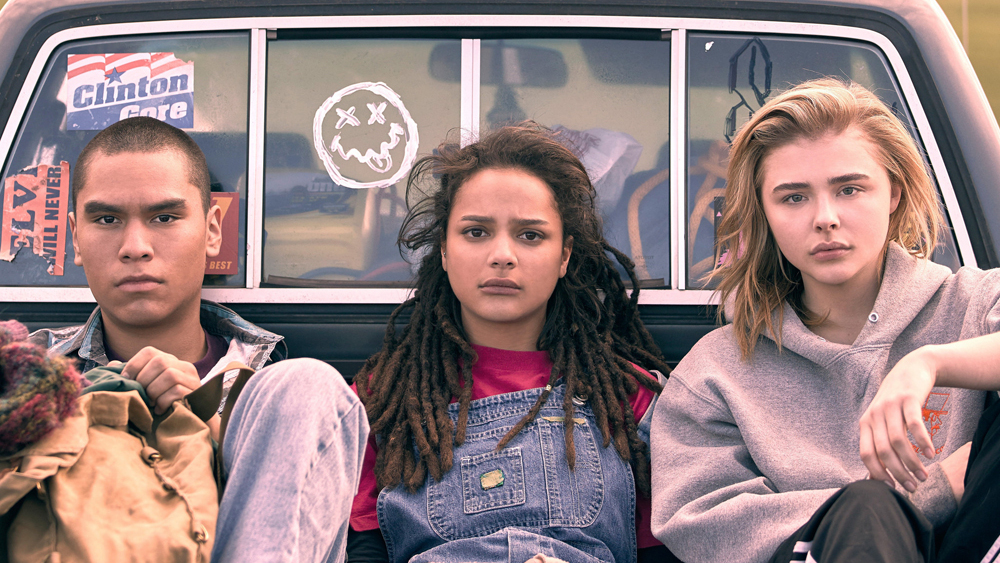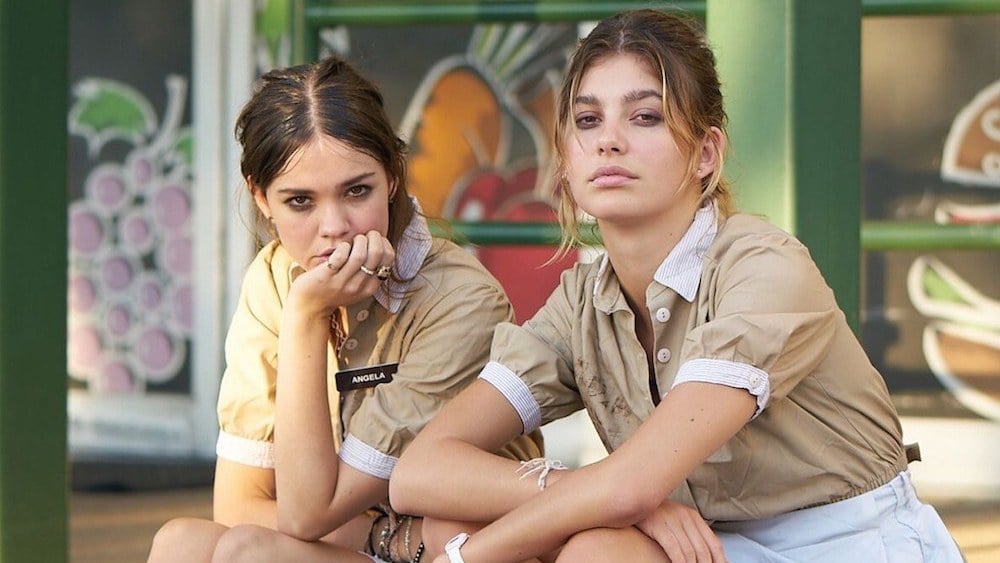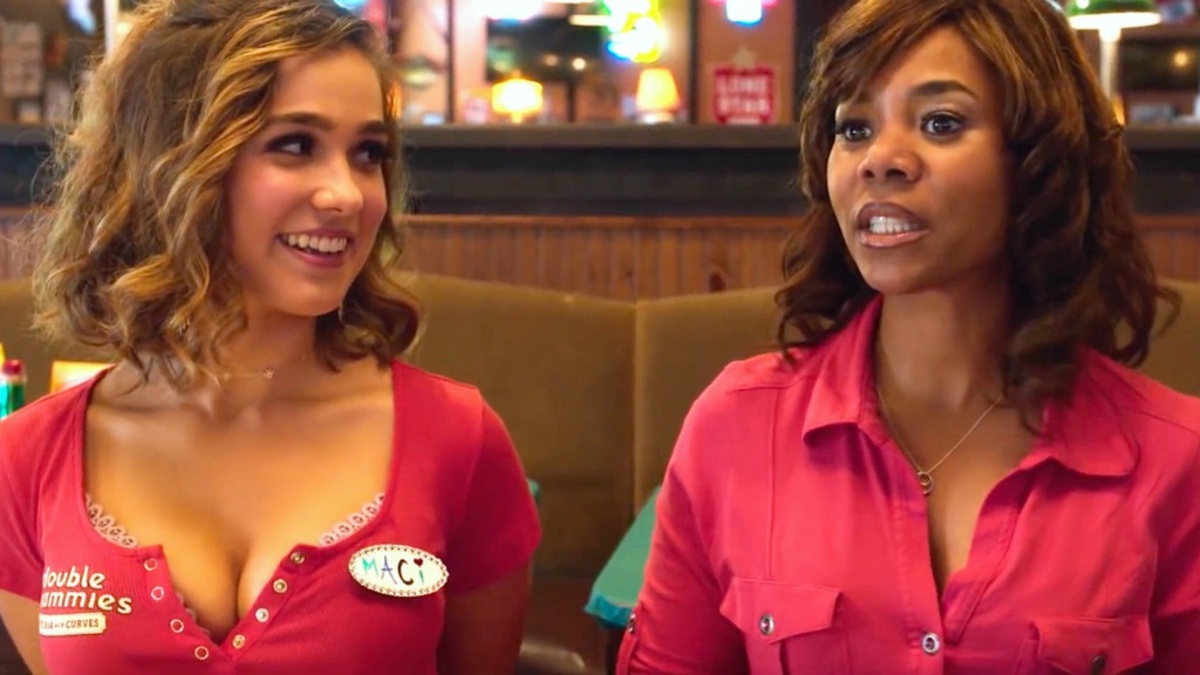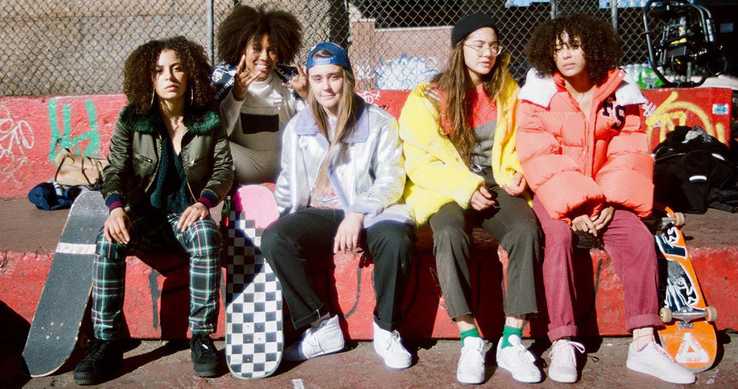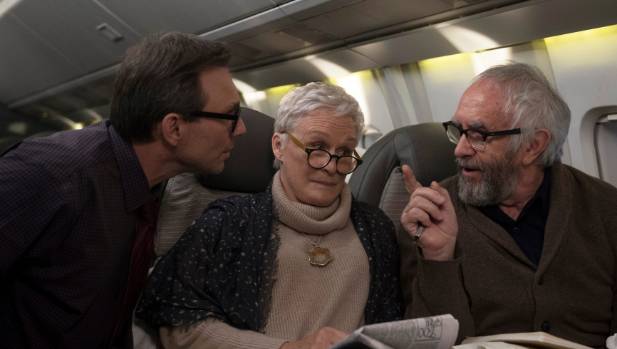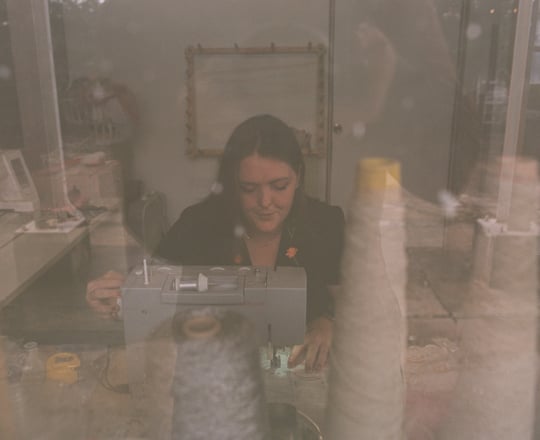
Girls have been a provocation, titillating bit players in American cinema. They’re the sirens with sassy pompoms, the victims of sex trafficking and meteors, the hand-wringing girlfriends wondering if their boyfriend will get home safely from being righteous and saving the world. They wait and they fret, and they’d better look cute doing it.
If you are a female student of film or just a woman with a taste for greasy popcorn and some semblance of reality in your current cinema, you tend to grasp at any sashay of smart, weird, saucy female characters in film because they are so rare. More often, we bathe in the ordinary indignities of a film culture that prefers girls and women as one-dimensional helpmates to Important Male Struggles. Thus the mania over the decidedly meh, sitcomish Ladybird—how could you not champion a film that celebrates female insecurity, mother-daughter friction and the difficult sexual rite of passage for young girls?
Lest one imagine such conjecture is just being pulled out of someone’s lady parts, according to the Center for the Study of Women in Television and Film—a pitiful 24 percent of protagonists in mainstream film in 2017 were female. That is, sadly, a decline from 2016. In fact, the biggest roles for women in 2017 came as bit parts in the Harvey Weinstein #metoo blockbuster where everyone from ingénues to seasoned pros demonstrated their dramatic range from fury to tears.
But recent months have seen a small but significant spate of femme-centric films, a refreshing break from the season’s throwaway guilty pleasure films. Like honest politicians in Washington, these are the kind of films that tend to appear and then vanish, often unremarked upon. That might be in large part because film critics are almost always male, according to that same Center for the Study of Women in Television and Film, which in spring 2018 found that men wrote 71 percent and women 29 percent of all reviews, and not surprisingly male critics reviewed films by women or featuring female protagonists less favorably than did their female peers. And few of those male critics bother to see themselves in these dramas, even though female audiences have been forced to play the game of inserting their own struggles into male ones for the history of film.
Helmed by idiosyncratic female characters, films like Eighth Grade, Support the Girls, Skate Kitchen, The Miseducation of Cameron Post, Never Goin’ Back and even the new Glenn Close picture The Wife have held out a promise that maybe, just maybe, in this #metoo landscape, the times they are a changin’. These films, many directed by women, many of which flew under the radar this summer, take female perspective and agency as a given. They tell compelling, troubling stories far beyond anything that could be consigned to the “woman’s film” ghetto. More often than not, these films hark back to an almost forgotten time, when rules were broken, courage was absolute and limitations seemed paper thin: in other words, girlhood.
In director Desiree Akhavan’s The Miseducation of Cameron Post, a gay teenager (Chloe Grace Moretz) struggles with the wanton cant and mendacity of the adult world when she’s sent to a Christian gay conversion camp, and in director Debra Granik’s Leave No Trace an increasingly self-actualized 13-year-old girl (Thomasin McKenzie) learns to claim her own direction in life and break away from the controlling, antisocial influence of her veteran father. Chick flicks they aren’t.
In director Augustine Frizzell’s first feature Never Goin’ Back, which disappeared quickly from local theaters after a brief run on the matinee time slot, two teenage waitresses in Fort Worth tackle impediments to their lo-fi goal of taking a beach vacation. In this new breed of film, boys are the distractions and the sidekicks rather than the tasty main course. Unlike the kind of raunchy plot that has long characterized male-centric comedies, Never Goin’ Back revels in female bonding and characters whose weirdness puts them defiantly outside the norms of acceptable behavior. Critic Roxana Hadadi rightly called it “a portrait of girls behaving badly and not giving a f*ck.”
As critic Jeannette Catsoulis wrote of Never Goin’ Back in The New York Times, “Drawing from memories of her own teenage years, Ms. Frizzell blows a raspberry at age-appropriateness (Jessie is 16), putting lipstick on the piggish behavior of the typically male-dominated smutfest to create something tacky yet weirdly tender.”
It’s often such small-scale stories of humble, ordinary women that resonate as something different, as in the slice-of-life workplace dramady Support the Girls. Regina Hall is Lisa, the manager of a Hooters-style Texas restaurant called Double Whammies. Lisa uses creativity and humanity to navigate a variety of foils in her workday, from an obnoxious boss to misogynistic customers to an inside-job robbery. If men fulfill their escapist fantasies through movies about super spies and gladiators, women do it through films that show them getting through a bad day or coping with rotten role models. A deceptively sweet treatise on female bonding and unflagging optimism in a fairly miserable world, Support the Girls uses the simple acts of enduring daily indignities and taking care of your fellow women in a plot that seems to embody the first wave feminist mantra that “the personal is political.”
No recent film has offered the exciting suggestion of sea change like the Sundance hit Eighth Grade from YouTube comedian Bo Burnham. That a hot young comedian chose to center his first film on an insecure middle-schooler with pimples and an adorable muffin top gives you hope for the future of our planet. Far from the delightful bitchery of Heathers and Mean Girls, Eighth Grade is both a gesture of extreme empathy and a powerful high-five to the legions of American girls left to flounder between their cultural overlords: beauty bloggers and Cosmo. An ordinary heroine struggling to find her identity in a deforming landscape of nude pics, Instagram, Snapchat and diary-style vlogs, 13-year-old Kayla (Elsie Fisher) navigates not just the treacherous waters of adolescence, but the super-judgy trenches of social media where you’re only as good as your last selfie. In a scene that is scarier than a horror film chase (and audiences may well be digging their fingers into their armrests in queasy empathy), the terrified Kayla enters a teenage pool party in full delirious swing, head bowed and braced for the guillotine. Eighth Grade captures with clammy uber-realness just how dire being an awkward, vulnerable girl feels. Boys are welcome to feel along.
Critic Richard Brody deemed Kayla too ordinary to merit our attention: “Burnham fails to invest the character of Kayla with any substance, curiosity, interests, particulars, or—above all—impulses that would render her vital, complex, deep.” But his New Yorker colleague, Naomi Fry, demonstrating the virtual necessity of female voices in both making and writing about film, metaphorically thumps him on the head with her observation that, in fact, it’s the very ordinariness of this new breed of girl character that makes them poignant and worth our attention. Far from the art chick of Ladybird that cool guys go ga-ga for, Kayla is the kind of mousy girl they pass by unnoticed. But Burnham shows us her, gulp, humanity.
What this rash of girl-centric comedies and dramas represent is the nearly forgotten rites of our own adolescent years. But headiest of all, for today’s tweens and teens, these films offer the radical proposition that a next wave of female directors and fellow traveler men may actually strive to represent the reality they live—a kind of strip mall spin on Italian Neorealism, with its focus on ordinary Italians, only here it’s Manhattan skate punks, waitresses, and chubby middle-schoolers who vie for our attention.
In director Crystal Mosell’s Skate Kitchen, about Manhattan teenage girl skate punks (based on and featuring a real-life group of skaters), the simple act of sunny afternoons wiled away in concrete skate parks practicing ollies feels like a revolution because it’s so uncommon. Add in bedroom bonding marathons worthy of a Judy Blume novel — with talk of tampons and body image — and Skate Kitchen offers up the most banal but poetic kind of girl power.
These films mine the often exquisitely ordinary dimensions of girlhood, as in Mosell’s tale of an innocent 18-year-old Camille (Instagram skate star Rachelle Vinberg) with an overbearing mother, who falls in with a multicultural gang of tough-talking but kind skate punks who roam the streets of Manhattan like Scorsese wise guys, butting heads with disrespectful boy skaters, pulling pranks and being reckless with the kind of heady, liberating freedom most women have hidden away like a tiny diamond in the pit of their souls. With a meandering, formless rhythm that mimics the feeling of girlhood’s long, open days, Skate Kitchen and films like it are a reminder of a time when we were brave, when we were free, when the world was full of possibility and adventure awaited. Richard Lawson in Vanity Fair noted, “it makes you feel nostalgic for a childhood you never had,” although for many women and girls, it is an emotional variation on our childhoods when we were unfettered, at least in our minds.
Most thrillingly, in all of these films being gay, black, Hispanic or other are all beside the point. These films find a shrugging naturalism in the colors of the rainbow and sexual spectrum of their female characters’ lives. No longer a film universe carved into issue films for different audiences, these beautifully shaggy girl pictures are come one come all.
Even the gray hairs are getting their moment in the sun as the doldrums of summer turn into fall. In a filmic adaptation of Meg Wolitzer’s upper-middle-class novel The Wife, Glenn Close plays Joan Castleman, a long-suffering academic spouse whose brilliant husband has just won the Nobel Prize, a circumstance that foregrounds her painful role as her husband’s champion and cheerleader which has entailed putting her own ambitions and desires on the back burner. It’s a parable for American cinema—female co-stars using their charms and wiles to highlight the presence of the real heroes: men.
Lurking within a familiar tale of marital woe and mutual misunderstanding is a Vesuvius of female fury so impacted from decades of being tamped down by any number of indignities, you expect Close’s explosive rage to take down the jet carrying her back to the States from Stockholm. But that’s just it — female rage is a constant, a suppressed force that can fuel creativity, vengeance, and will that The Wife gives us the merest whiff of. Joan may be too far gone, her chance at literary greatness behind her, but the girls of summer are a reminder that the next generation is close at her heels, biding their time.
Skate Kitchen will be released Nov. 20 on DVD.
Eighth Grade is currently playing at Landmark Midtown Art.
The Wife opens Sept. 7 in Atlanta.
Support the Girls will be available on Prime Video.
The Miseducation of Cameron Post is slated for a November or December DVD release.
Never Goin’ Back is available for pre-order on iTunes.
Mission: Impossible – Fallout is in wide release.

